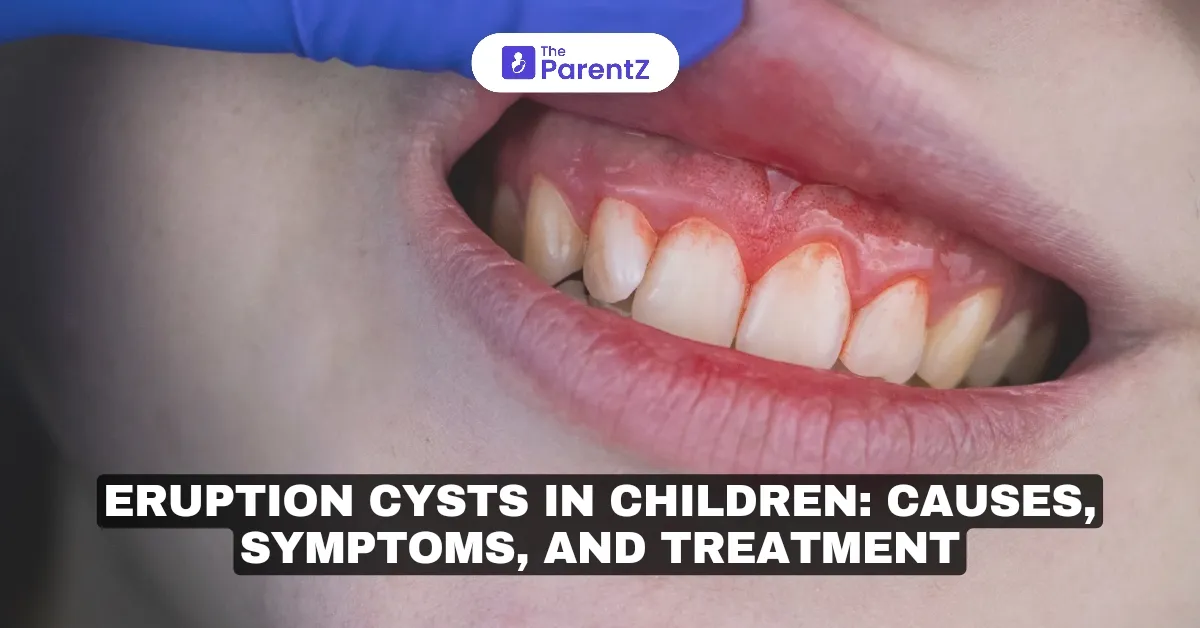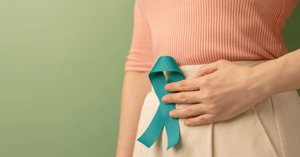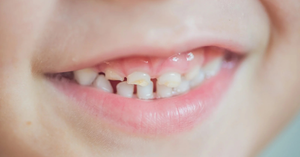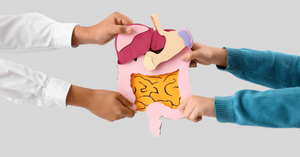When your child is teething, it can be a bittersweet time on one hand, it’s a milestone, and on the other, it can come with discomfort and surprises. One such surprise might be an eruption cyst. These are harmless but often concerning for parents who notice them for the first time.
What Are Eruption Cysts?
An eruption cyst, also known as an eruption hematoma, is a fluid-filled swelling that forms over a tooth that is about to erupt (break through the gums). They are most common in children as baby teeth and permanent teeth start coming in.
These cysts are usually:
• Soft to the touch and may appear bluish, pink, or transparent.
• Found on the gums, typically above the developing tooth.
• Pain-free but can occasionally cause mild discomfort if they grow large.
What Causes Eruption Cysts?
Eruption cysts occur when a tooth is pushing through the gum tissue, and fluid accumulates between the tooth and the gum.
Common Triggers:
• Teething in infants and toddlers.
• The eruption of permanent teeth in older children (usually around age 6-12).
Eruption cysts are more likely to form in the molars or front teeth but can appear over any erupting tooth.
How to Identify Eruption Cysts in Children
Eruption cysts can be mistaken for other gum issues. Here’s how you can recognize them:
1. Appearance:
• A round or oval-shaped bump on the gum.
• May be bluish, purple, or pink in color.
2. Location:
• Directly over the site of an erupting tooth.
3. Symptoms:
• Usually painless, though some children may experience mild tenderness or discomfort.
• No fever or systemic symptoms (which would suggest another issue, like an infection).
Are Eruption Cysts Dangerous?
No, eruption cysts are harmless and often resolve on their own without any treatment. However, it’s natural for parents to worry, especially if the cyst looks large or unusual.
What Should Parents Do?
1. Observe and Wait
• Eruption cysts typically disappear on their own as the tooth erupts.
• Most cysts resolve within a few days to a week without any intervention.
2. Maintain Good Oral Hygiene
• Gently clean your child’s gums and teeth using a soft-bristled toothbrush or a damp cloth.
• Avoid harsh brushing over the cyst to prevent irritation.
3. Use Comfort Measures if Needed
• If your child experiences discomfort, try teething rings, a cold compress, or over-the-counter pain relief (after consulting with your pediatrician or dentist).
When to See a Dentist
While eruption cysts usually don’t require medical attention, there are situations where a visit to the dentist is essential:
• Cyst Doesn’t Resolve: If the cyst persists for more than two weeks or grows larger.
• Signs of Infection: Redness, pus, or swelling beyond the cyst could indicate an infection.
• Excessive Pain: If your child is in significant discomfort, the dentist may recommend draining the cyst or other treatment.
• Uncertainty About Diagnosis: If you’re unsure whether it’s an eruption cyst or something else, let the dentist take a look.
How Are Eruption Cysts Treated by Dentists?
In most cases, dentists will recommend observation and reassurance. If intervention is needed:
1. Cyst Drainage: In rare cases, a dentist may puncture the cyst to release the fluid, allowing the tooth to erupt.
2. Removing Obstacles: If gum tissue is unusually thick and blocking the tooth, a small surgical procedure might be necessary.
Preventing Eruption Cysts
While eruption cysts aren’t entirely preventable, you can support your child’s dental health during teething by:
• Encouraging Gentle Gum Care: Massage your child’s gums with a clean finger or a soft cloth.
• Maintaining Regular Dental Checkups: Start dental visits early (by age 1) to monitor oral development.
• Avoiding Sugary Drinks and Snacks: Sugary foods can irritate the gums and contribute to poor oral health.
FAQs About Eruption Cysts
Q: Can eruption cysts occur in adults?
A: It’s very rare. Eruption cysts are primarily seen in children as they grow baby and permanent teeth.
Q: Are eruption cysts painful for children?
A: They are usually painless, though some kids may feel mild discomfort, especially if the cyst is large.
Q: Can I pop the eruption cyst at home?
A: No, never try to pop or puncture an eruption cyst. This could introduce bacteria and cause an infection.
A Final Note for Parents
Eruption cysts may look a little alarming, but they’re a normal part of your child’s teething journey. With a little patience and regular oral care, your child’s smile will continue to grow healthy and strong. Remember, you’re not alone, your dentist is here to answer any questions and guide you through this milestone.








Be the first one to comment on this story.